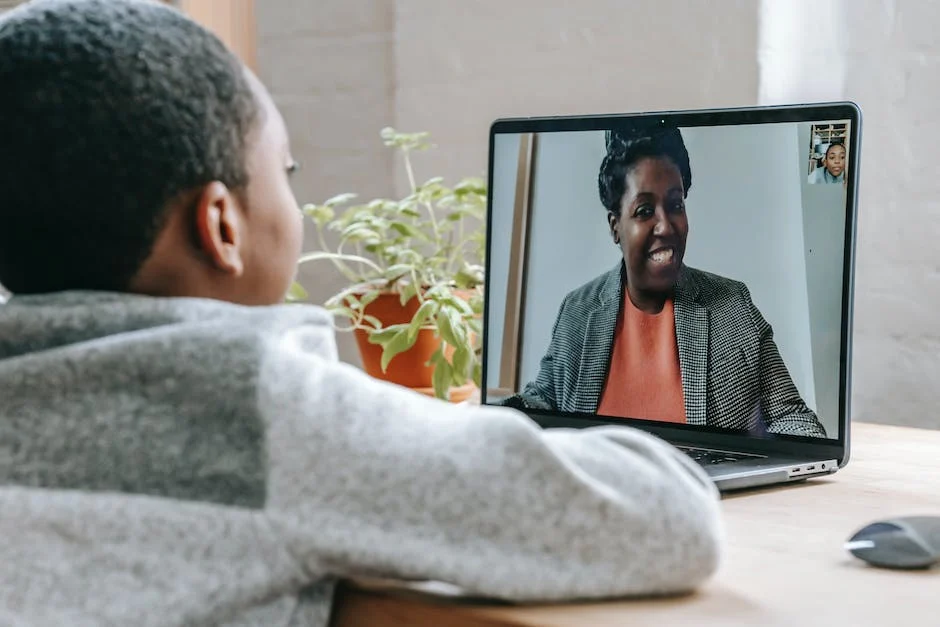After you've applied for a job, there's an interview where you'll be asked questions so that employers know that you're a great fit for their company.
The questions asked depend on your field, position, the company and other factors so it's hard to say exactly how you should answer job application questions. But this article will give you general thoughts to keep in mind as you prepare for that interview.
Let them know you care

Your answer should show that you are interested in this company and position. But beyond that, it should indicate that you take workplace commitments seriously and can communicate well with others. You want to make sure they believe you will be able to work effectively during times when things may not go as planned.
As you prepare for the interview, think about what questions might have been asked previously and write answers based on those examples. For example, if someone inquired about your hobbies, you could say something like “I am an experienced traveler so I always seem to find time to read while traveling” or “My current favorite genre of fiction is historical novels so I usually read one of these while listening to music.”
Your answer should also demonstrate that you pay attention to detail and don't forget easily. This could be mentioning past experiences that relate to the job or how you performed tasks for previous employers.
Be honest

If you’re not sure of the exact answer to a question, do your best to give your own impression or interpretation of the information given. If you feel like you can’t provide an accurate response, be straightforward about it and say so.
Many employers will accept this as being more confident in you, which is always a good thing. At the very least, they’ll know what to expect from you when you come into work next.
Be careful though, don’t make things too vague either. You wouldn’t want to come off as someone who doesn’t put effort into their job.
By the same token, don’t go around telling blatant lies either. It may get found out eventually and could hurt your chances of getting hired.
If there are questions that you’re unsure of and those questions were asked before an interview, ask your colleagues or whoever sent out the application how they should be answered. They’ll almost certainly have some tips for you.
Talk about your skills and experiences

Adding interesting, thoughtful answers to these questions will help ensure you get the job! But what kind of answers are needed?
You do not need to list every professional skill that you have or an elaborate story for every position applied under, so don’t worry if this seems like it is too much.
We recommend being very specific with how you answer each question. Make sure to emphasize things such as achievements, strengths, and examples of performance.
Be confident

After all, even if you’re not necessarily looking forward to meeting with this potential employer for an interview, going into it with confidence will help you feel more prepared. And being prepared is never a bad thing!
Conversational etiquette in interviews applies when applying for a job too – remember, these are two professionals talking to each other so there’s no need to be overly formal or intimate. When asked about past experiences or weaknesses, reply briefly but confidently and don’t get drawn into longer answers unless prompted.
Be aware of common pitfalls like using clichéd phrases or long explanations that seem very self-focused. Avoid answering questions with another question — instead, focus on giving your best answer and leaving some time after the interview for reflection. And finally, be natural.
Be proactive

While it’s important to be prepared when answering job application questions, don’t let that preparation take too long. Answering these types of questions in a hurry may put you in a bad position because you might not think about something crucial until later.
Hiring managers often ask about past experiences or situations. This is usually asked during the phone screen or initial interview. If someone asks you whether there have been any shifts at your current job, for example, make sure to talk about it with some depth. Don’t say simply “yes” or “no.”
Instead, discuss what happened, how you handled it, and the consequences. You can even explain why you didn’t do anything more if that applies to you. Doing so will show them that you are thoughtful and careful, which are good qualities for a workplace leader.
Connect with them

The first way to show employers that you are interested in their company is by connecting with them! When they write an email or question about themselves, their team, or the position, you can take note of something important – it’s personal.
What makes someone interesting? What matters isn’t just what they say but how they say it. If you notice anything distinctive about the person asking questions, try to find out more about them.
By being aware of who these people are and what makes them special, you will stand out as someone who does your research and connects with others. This will make you seem like a thoughtful individual who values relationships and communication.
Running through a list of answers for a job interview doesn’t necessarily tell the truth. More likely, it tells the interviewer what they want to hear. Don’t do that unless you are willing to be exposed as a liar later.
Instead, think back on some of the qualities you admire in individuals- whether professional, social, creative, etc.- and apply those to your answers.
Finally, take it easy

Even if you are not sure of the exact answer, do not worry! No one expects you to be totally familiar with every detail about yourself, your job experiences, and what position you want to hold in this organization, nor should they expect you to have all the answers to every question.
Many employers look at past employment records, education certificates, and applications to determine if you are the person that they need to work with. If they like what they see, then they will give you more opportunities to show off how skilled you are so that you can prove that you belong here.
